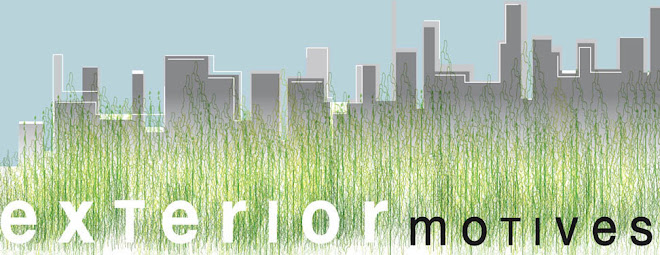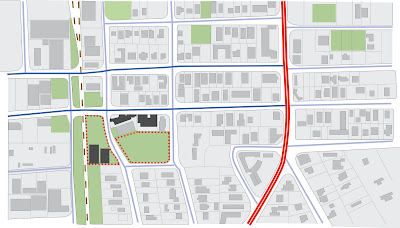 Eaton Park is small neglected park next to the Florida East Coast Rail road tracks, behind a county library and a private daycare. It's location as a pilot for a community designed park and public art project is ideal. Eaton Park is in close proximity to several schools (elementary, middle and high schools), Little Haiti's main street, and other community contributors such as Catholic Charities. Eaton Park is also in close proximity to several forgotten historical treasures such as the Magic City's Trailor Park housing about 20 one-room, shotgun houses on the property, and the Lemon City Post Office circa 1902. Little Haiti's cultural presence mixed with Miami's Lemon City History congealed into socio-economically and culturally vibrant community that has enriched Miami's multiethnic character.
Eaton Park is small neglected park next to the Florida East Coast Rail road tracks, behind a county library and a private daycare. It's location as a pilot for a community designed park and public art project is ideal. Eaton Park is in close proximity to several schools (elementary, middle and high schools), Little Haiti's main street, and other community contributors such as Catholic Charities. Eaton Park is also in close proximity to several forgotten historical treasures such as the Magic City's Trailor Park housing about 20 one-room, shotgun houses on the property, and the Lemon City Post Office circa 1902. Little Haiti's cultural presence mixed with Miami's Lemon City History congealed into socio-economically and culturally vibrant community that has enriched Miami's multiethnic character.
Tuesday, April 28, 2009
summary
 Eaton Park is small neglected park next to the Florida East Coast Rail road tracks, behind a county library and a private daycare. It's location as a pilot for a community designed park and public art project is ideal. Eaton Park is in close proximity to several schools (elementary, middle and high schools), Little Haiti's main street, and other community contributors such as Catholic Charities. Eaton Park is also in close proximity to several forgotten historical treasures such as the Magic City's Trailor Park housing about 20 one-room, shotgun houses on the property, and the Lemon City Post Office circa 1902. Little Haiti's cultural presence mixed with Miami's Lemon City History congealed into socio-economically and culturally vibrant community that has enriched Miami's multiethnic character.
Eaton Park is small neglected park next to the Florida East Coast Rail road tracks, behind a county library and a private daycare. It's location as a pilot for a community designed park and public art project is ideal. Eaton Park is in close proximity to several schools (elementary, middle and high schools), Little Haiti's main street, and other community contributors such as Catholic Charities. Eaton Park is also in close proximity to several forgotten historical treasures such as the Magic City's Trailor Park housing about 20 one-room, shotgun houses on the property, and the Lemon City Post Office circa 1902. Little Haiti's cultural presence mixed with Miami's Lemon City History congealed into socio-economically and culturally vibrant community that has enriched Miami's multiethnic character.
 Murals are not only public works of art but they can serve as a visual narratives. One of the distinguishing characteristics is the colorful and distinctive Caribbean signage along the business corridors. Murals in Little Haiti used as commercial signage not only act as descriptors of the store front but additionally recount culturally significant values. This Caribbean form of expression among business owners has also been adopted by non Haitian business owners in the community. Churchill's, Sweat Records, Ace Props, and various artist studios in the area also advertise their vocation through this murals as signage technique. In a public space a mural can create a visual and physical node. Developing a public mural or art in public space project in Little Haiti can serve as visual account of the community's history, present, and future.
Murals are not only public works of art but they can serve as a visual narratives. One of the distinguishing characteristics is the colorful and distinctive Caribbean signage along the business corridors. Murals in Little Haiti used as commercial signage not only act as descriptors of the store front but additionally recount culturally significant values. This Caribbean form of expression among business owners has also been adopted by non Haitian business owners in the community. Churchill's, Sweat Records, Ace Props, and various artist studios in the area also advertise their vocation through this murals as signage technique. In a public space a mural can create a visual and physical node. Developing a public mural or art in public space project in Little Haiti can serve as visual account of the community's history, present, and future.

If a mural program such as the ones in Philadelphia and Los Angles could be developed in Little Haiti, walking and driving tours could be initiated. Walking - Driving tours can stimulate interest in this vibrant cultural enclave, show casing it's many flavors, multicolored art work, compass music, creole cooking and caribbean goods. These tours could also lead to further development of the main street ( on NW 2 Ave) south bound connecting and expanding to the design district and the commerical hotspots developing on Biscayne Blvd.
Wednesday, April 8, 2009
Saturday, March 7, 2009
Murals in Little Haiti


Above are some of the colorful murals that give Little Haiti that extra flavor. Hand painted murals on the exterior of the commercial facades adds to the community identity. The community's cultural vibrancy is apparent in the colors and aesthetics that are clearly depicted on the commercial store fronts. This kind of signage/murals are unique to Little Haiti. The amount of hand painted murals exposed to commercial frontage is distinctive to Little Haiti. No other community in Miami, has this unique idiosyncratic cultural flavor. Vibrant botanicas and buzzing corner markets and blaring record stores not contributing sounds smells and sights all unmistakeably Little Haiti.
Wednesday, March 4, 2009
Site - Eaton Park



Eaton Park is a small city park behind the Lemon City Library. The park is composed of a large ball field and a small children's play ground. There are 3 shade trees, comfortable sitting areas are limited. Across the street next to the rail road tracks there are two basket ball courts. This area of the park needs the most improvement.
The Lemon City Branch Library is one of the oldest public libraries in South Florida. The original building was erected in 1902
Site - Circulation
Site - Tree Canopy
Tuesday, March 3, 2009
Community Analysis

 Despite the blighted sections of Little Haiti, it is a vibrant and lively cultural enclave. A walk down the main street on NE 2nd Ave will allow a visitor to experience the distinct Caribbean-Francophone flavor. The colors, sights, sounds and smells of Haitian culture ;Botanicas blaring Caribbean music, small corner stores selling goods and the aromatic blend of spices from local eateries will take over your senses.
Despite the blighted sections of Little Haiti, it is a vibrant and lively cultural enclave. A walk down the main street on NE 2nd Ave will allow a visitor to experience the distinct Caribbean-Francophone flavor. The colors, sights, sounds and smells of Haitian culture ;Botanicas blaring Caribbean music, small corner stores selling goods and the aromatic blend of spices from local eateries will take over your senses.Little Haiti was once the Historical Lemon City a working class neighborhood that was established in the early 1900's. The area had many lemon groves from where the town took its name. The town even had its own railway depot on the Florida East Coast Railroad. In 1925, Lemon City was annexed by Miami, along with the town of Little River to the north, and the town of Buena Vista to the south
Nodes
Subscribe to:
Comments (Atom)







